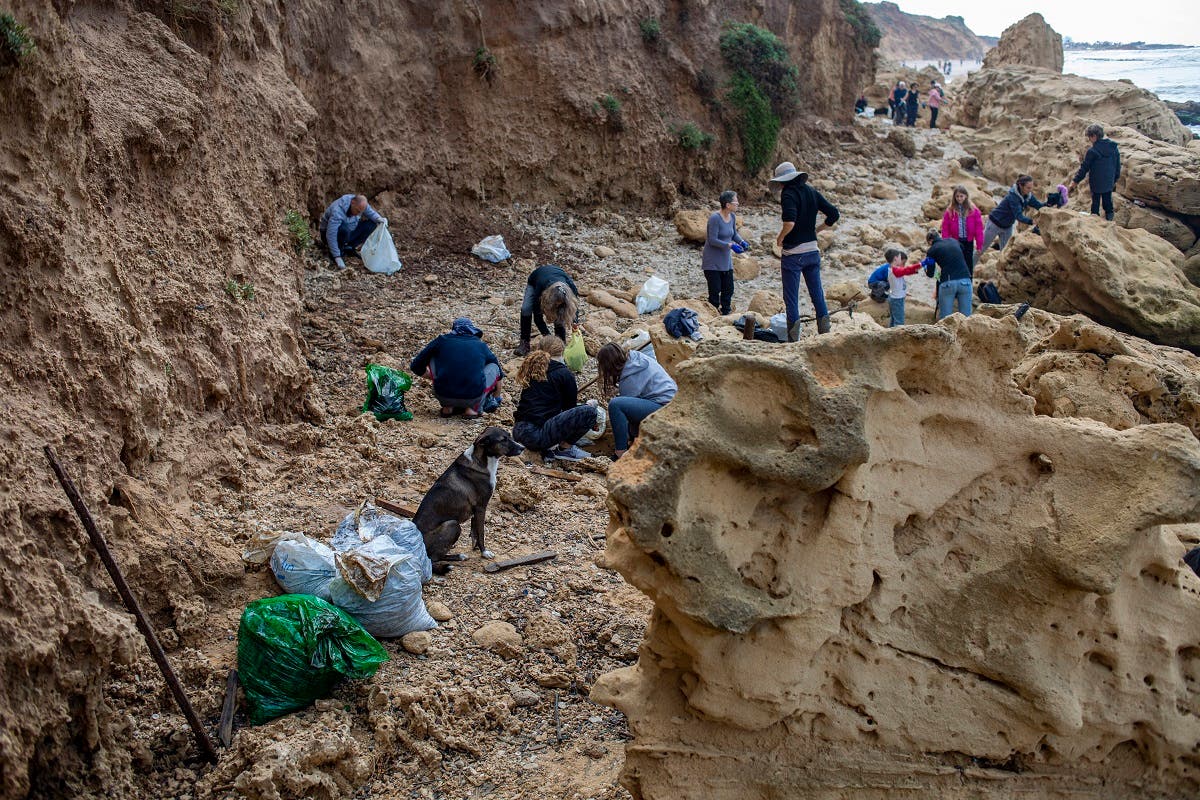Rawad Taha, Al Arabiya English
Published: 22 February ,2021
Lebanon and Israel face the strongest marine ecological disaster since the 2006 war oil spill after a recent oil leak that officials in Lebanon said has originated from “a ship of the Israeli enemy” and has now reached the southern shores of Lebanon.
Lebanon’s Prime Minister Hassan Diab’s office said he has been following up on the oil spill issue.
Diab has assigned the Ministers of Defense and Environment in the caretaker government, along with the National Council for Scientific Research, to follow up on the matter in terms of informing the United Nations Interim Force in Lebanon (UNIFIL) forces for them to conduct an official report, as well as in dealing with the leakage and its damages.
The Director of Programs at Lebanon-based Greenpeace Middle East and North Africa Julian Jreissati commented on the issue of the oil spill, with a statement calling on the Ministry of Environment to “take immediate measures to assess the magnitude of the risk of this spill by setting up an urgent survey and monitoring program.”
“The authorities must develop a quick plan to reduce the impacts on the environment and public health, and based on the results of the assessment, the authorities should provide safety instructions to the Lebanese people, especially concerning fishing and swimming activities,” Jreissati added.
Jreissati added that this incident adds to a long list of oil spills that threaten the rich marine biodiversity and affect the eastern Mediterranean region’s inhabitants.
“It is a manifestation of the destruction of nature resulting from the addiction of the global systems to fossil fuels,” he added.

2006 oil spill
The last oil spill in the region of such a scope happened during the 2006 war between Lebanon and Israel after the Jiyeh Power Station in Lebanon was bombed by Israel.
The bombing resulted in the largest oil spill in the Mediterranean, caused by the release of heavy fuel oil into the eastern basin of the Mediterranean.
The plant’s damaged tanks leaked up to 30,000 tons of oil, a 10-kilometer-wide oil slick covered 170 kilometer of coastline in Lebanon and has reached both Turkey and Cyprus.
That incident threatened the habitat of endangered green sea turtles.
In 2014, The UN General Assembly approved a resolution requesting Israel to pay Lebanon over $850 million in damages for the oil.
The assembly voted 170-6 in favor of the nonbinding resolution, with three abstentions. Israel, the US, Canada, Australia, Micronesia, and Marshall Islands were the only countries to vote with a “No”.
Read more:
Israel’s beaches blackened by tar after offshore oil spill
Israel shuts Mediterranean beaches after oil devastates coast
